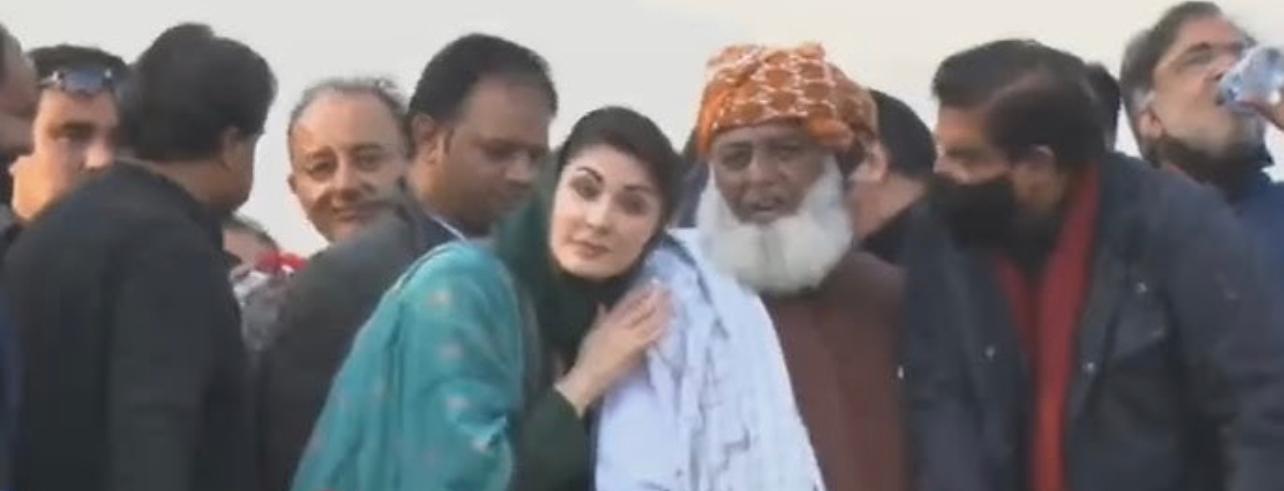Maryam Nawaz — The daughter who is shaking up pakistan
In recent months, Maryam Nawaz, the daughter of former Prime Minister Nawaz Sharif, has emerged as a prominent political figure, mobilising millions of Pakistanis against the government and its military backers. Much like Benazir Bhutto did in the 1980s, Maryam is challenging the establishment and igniting political fervour across the country. But this time, her political journey is being shaped by an unexpected new alliance — one with an influential Islamic scholar, which could signal a new chapter in Pakistan’s political landscape.
Maryam Nawaz, who has long been a key figure in the Pakistan Muslim League-Nawaz (PML-N), is now drawing attention for her vocal criticism of the military and the government led by Prime Minister Imran Khan. Her speeches, laden with emotion and often personal anecdotes, are resonating with millions, particularly in the wake of her father’s ongoing health battle. Nawaz Sharif, who has spent time in custody under a military-backed regime, is currently undergoing medical treatment in London. Maryam frequently references her father’s ordeal in her public addresses, painting a picture of a nation suffering alongside its leader.

At a rally last week in Mansehra, Khyber Pakhtunkhwa, she addressed her supporters, connecting the struggles of her father to the broader economic crisis faced by Pakistan. “You love Nawaz Sharif, and he is suffering. And you too are suffering,” she told a crowd of thousands. The personal connection she fosters between her father’s plight and the country’s troubled economic state has earned her significant support among the masses, particularly those from the middle and lower classes who have felt the sting of rising inflation and unemployment.
Maryam’s rhetoric often blends themes of personal sacrifice with political rebellion, recalling the way in which her father’s government was toppled and how he suffered in the custody of the military-backed regime. Her speeches are now becoming the central platform for PML-N’s political revival, as she embarks on what appears to be a carefully planned campaign to bring people to the streets. From Punjab to Khyber Pakhtunkhwa and Sindh, her public meetings are drawing millions of supporters. In a country where economic hardship and political frustration have reached a boiling point, Maryam’s message seems to be resonating deeply.
But it is not only her powerful speeches that are drawing attention. Maryam Nawaz’s close relationship with a prominent Islamic scholar, who has been gaining influence among Pakistan’s conservative factions, is a significant political development. This connection could be a strategic move, positioning her as a champion of Islamic values in a time of political instability. The scholar, whose teachings focus on Islamic jurisprudence and social justice, has openly supported Maryam in her political endeavours, offering her advice and endorsements at key moments. This alliance is seen by many as an attempt to consolidate support from Pakistan’s vast religious conservative base, which has often been at odds with the Sharif family’s traditionally secular approach to politics.
The presence of an Islamic scholar by her side further strengthens her political credentials, offering her a platform from which to challenge both the current political establishment and the military, which has traditionally held significant sway over Pakistan’s political landscape. Maryam’s ability to bridge the gap between secular politics and conservative religious groups could prove to be a decisive factor in her political trajectory, particularly as she seeks to position herself as the leader of a broad-based political movement.
The alliance with the scholar is also a reflection of a broader strategy to shift the narrative around the Sharif family’s political identity. Historically, the Sharifs have been seen as champions of business and urban elites, but now, with Maryam emerging as a leader in her own right, there is an effort to align more closely with Pakistan’s conservative and religious demographic. This move is likely to broaden her support base and give her a much-needed edge in a political climate dominated by the powerful military and a rising populist sentiment.
As Maryam Nawaz continues to galvanise support through her speeches and her newfound alliances, she faces significant opposition from the government, the military, and rival political forces. However, her ability to mobilise millions and inject new life into the PML-N has positioned her as a formidable political force. Whether she can build a sustainable political movement capable of challenging the current government remains to be seen, but one thing is certain: Maryam Nawaz is not just a political legacy of her father, Nawaz Sharif. She is becoming a force in her own right, shaping the future of Pakistani politics.
With the country facing growing political tensions, an economic crisis, and uncertainty about the future, Maryam’s actions will continue to be closely watched as she navigates her path through Pakistan’s complex political landscape. What remains clear is that, like her father before her, Maryam is ready to shake up the status quo — and her alliance with an influential Islamic scholar may prove to be one of the most important political moves of her career.







